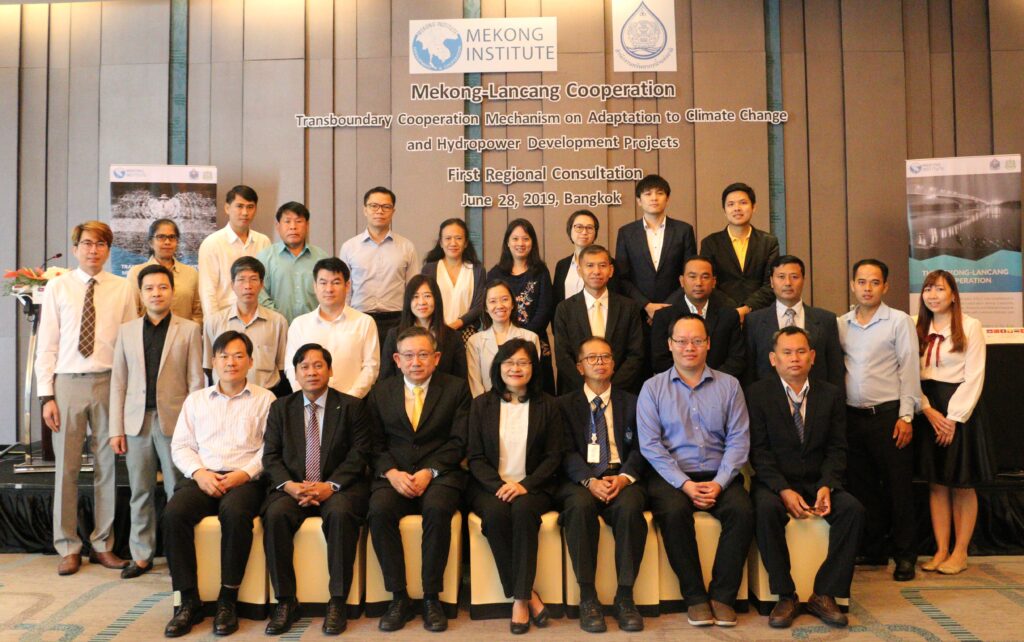June 28, 2019 (Bangkok, Thailand) — Water resource experts and key stakeholders from relevant agencies in five countries join today’s 1st regional consultation as part of Mekong Institute’s project on Transboundary Cooperation Mechanism on Adaptation to Climate Change and Hydropower Development Projects, an initiative supported by the Mekong-Lancang Cooperation (MLC) Special Fund.
Organized in collaboration with the Office of National Water Resources, Thailand, the regional consultation is the first of two consultations planned to be carried out as part of the project’s broad objective of creating a transboundary cooperation mechanism on water resource management and climate change adaptation in the Mekong River Basin.
Addressing the participants from Cambodia, Lao PDR, Myanmar, Thailand and Vietnam, Dr. Kanapoj Wandee, Expert Civil Engineer from the Office of the National Water Resources, Thailand, stressed that Mekong-Lancang countries are highly vulnerable to climate change and effects of extreme weather. Hydropower, which contributes to renewable energy mix, is impacted by climate change owing to fluctuations in water flow and level of the river. Due to its large water storage and water regulating capacity, hydropower projects are integral to climate adaptation.
Flow and water level are critical issues in the Mekong-Lancang River as both are affected by precipitation cycles, which in turn are threatened by climate uncertainties. Furthermore, developments along the Mekong-Lancang River can alter its natural set in the long run, if not permanently. Over 70 million people’s lives are intertwined with the river, which is a major source of irrigation, water supply, and clean power production in the region, not to mention a critical transport and tourism pathway.
Ms. Maria Theresa S. Medialdia, Director of MI’s Agricultural Development and Commercialization Department, also underscored the importance of the collaborative inputs from the key agencies in attendance to promote cooperation in the interest of a shared future for the people of the Mekong-Lancang region. She also expressed appreciation to the Government of the People’s Republic of China for their support to the project.
The project’s objective of fostering transboundary water cooperation draws on one of the MLC’s cooperation areas on Economy and Sustainable Development that emphasizes technical cooperation and exchange on water resources management and enhanced data and information sharing.
The 1st regional consultation hopes to contribute to further setting the course for increased data and information sharing among relevant agencies. Since 2018, the Project has carried out a series of scoping visits in Thailand, Lao PDR and P.R. China, national consultations as well as interviews with national experts and desk reviews. A second regional consultation and national consultations in Lao PDR and P.R. China are set to take place in the next months.








